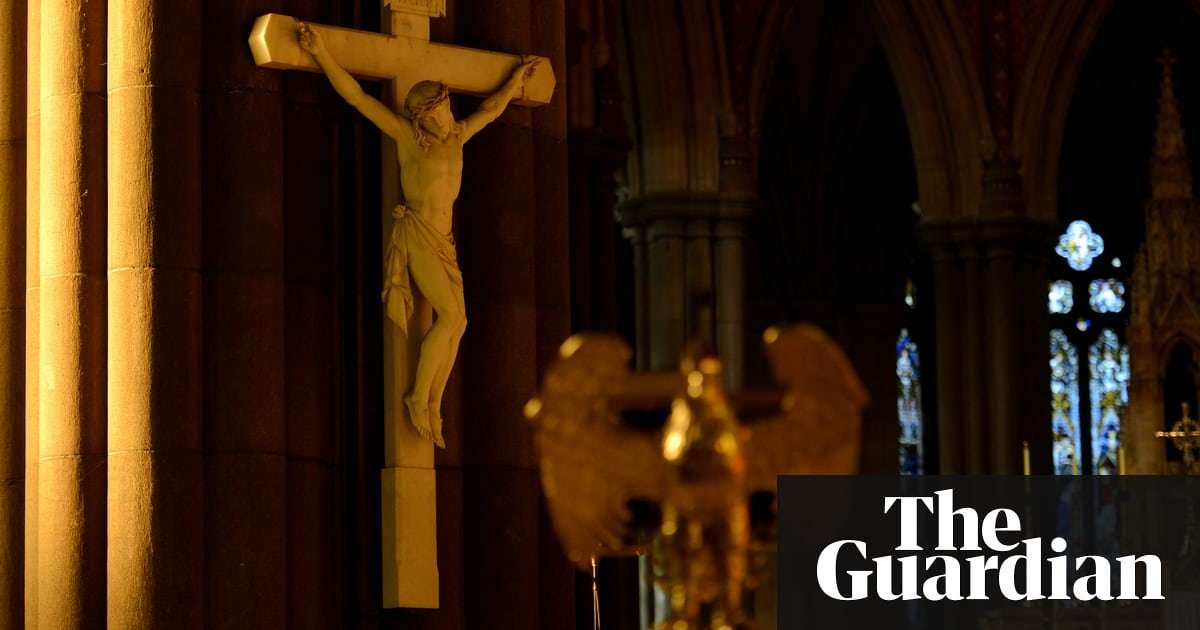Survivors of child sexual abuse will be able to sue churches and other institutions under changes to New South Wales’s civil litigation laws.
The state’s attorney general, Mark Speakman, on Sunday said the state government would remove legal barriers that have stopped victims from seeking justice, based on recommendations from the royal commission into institutional child sexual abuse.
“These reforms will provide access to new avenues to allow survivors to pursue compensation so they can focus on recovering and moving forward with their lives,” he said.
Child sexual abuse: all states on board for redress after WA resolves doubts Read more
Under the changes, institutions would also no longer be able to distance themselves from the actions of so-called “non-employees” such as volunteers and paedophile priests.
The NSW government said it would reverse the onus of proof and require organisations to prove they took reasonable precautions to prevent abuse.
Under the current laws, a church cannot be sued because it does not legally exist as its assets are held in a trust. This known as the “Ellis defence”.
Courts will now have the power to appoint trustees to be sued if those institutions fail to nominate an entity with assets and allow the assets of the trust to be used to satisfy the claim.
More than a decade ago, the Catholic Church won a legal battle against former altar boy John Ellis, who was sexually abused by Father Aidan Duggan of the Bass Hill Parish when he was 13.
Ellis sued the priest, along with Cardinal George Pell and the trustees of the Roman Catholic Church for the Archdiocese of Sydney. The supreme court trial judge found the trustees could be sued but the court of appeal ruled the trustees did not control nor was responsible for Duggan’s conduct. Duggan died in 2004.
Ellis said the new laws were the “culmination of a life’s work” and would ensure survivors would not face the same setbacks as he had.
Speakman said the laws, which were drafted in response to the royal commission’s redress and civil litigation report, would enable “thousands of survivors” to seek compensation.
Victoria passed laws to close the legal loophole in May. NSW hopes to introduce them in parliament before the end of 2018.
“It’s staggering that these institutions in the past have been abject failures when it comes to reporting what has gone on,” Speakman told reporters. “These reforms will make it easier for child sexual abuse survivors ... to take action against those who have failed them in the past.”
The Catholic Church in NSW said it had been helping survivors to identify proper defendants and ensuring claims are met “for some time now”.
“However, the NSW dioceses recognise more can be done to make access to the justice system easier,” Sydney archbishop Anthony Fisher said in a statement. “We support having a clear entity as a proper defendant for claims.”

ZenRhizer on June 10th, 2018 at 13:45 UTC »
As a Christian, I can't think of anything less Christian or more evil than the ignoring, covering up, or participation of abuse, especially against children, inside the Church. So this is good. There needs to be accountability. The Church is supposed to be a place these people can go to find comfort and support. Christians SHOULD be their own greatest watchdogs, but unfortunately it's not really the case.
Throwaway_Apple125 on June 10th, 2018 at 09:30 UTC »
Jesus! On mobile it cut the title off at "NSW to change laws to allow child abuse". I about fell out of my chair!
Annesley602 on June 10th, 2018 at 08:19 UTC »
survivors of child sexual abuse will be able to sue churches and other institutions under changes to New South Wales’s civil litigation laws.
The state’s attorney general, Mark Speakman, on Sunday said the state government would remove legal barriers that have stopped victims from seeking justice, based on recommendations from the royal commission into institutional child sexual abuse.